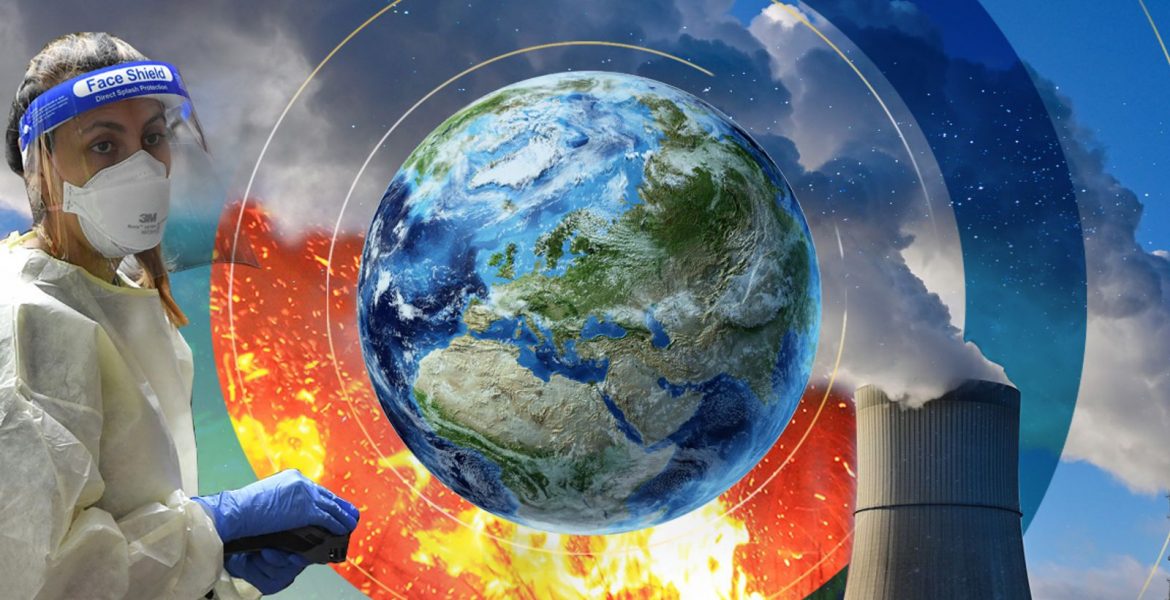The IPCC, the world’s most authoritative climate science body, has released its highly anticipated Working Group II report on climate impacts, adaptation, and vulnerability.
The report finds that the world is already facing the “unequivocal” consequences of climate change, which is killing people, damaging food production, destroying nature and reducing economic growth. Some of these damages are already irreversible. The report urges “concerted anticipatory global action” to avoid missing “a brief and rapidly closing window of opportunity to secure a liveable and sustainable future for all”.
With future warming, damages will increase rapidly. Adaptation can help cope with some of these damages, but it is underfunded – and with continued emissions there will be more risks we will not be able to adapt to. Faster emission cuts will be the only way to limit the consequences of climate change, it says.
Laura Lorenzo, Director of the World Rural Forum, a network of family farming federations, agricultural cooperatives and rural development organisations which represents more than 35 million family farmers in 60 countries across the globe:
“Family farmers produce 80% of food consumed globally yet are highly exposed to climate change and its impacts. Many are doing everything they can to adapt to a changing climate and produce food more sustainably – but they can’t do it alone. They need support to diversify their farms through intercropping, agroforestry, and the use of local seed varieties, they need support to manage water more sustainably, and to access local markets.”
“Family farmers are part of the solution to the climate crisis. They must be at the heart of government decision making on building climate resilient food systems so that they can continue to produce healthy, nutritious foods for generations to come.”
Martin Schulz, pig farmer and National Chairman of AbL (Working Group for Peasant Farming), a German farming union which brings together 2,500 conventional and organic farmers and allies to campaign for sustainable and socially compatible agriculture:
“Farmers in Germany and across the globe are already massively experiencing the impact of the climate crisis. In the drought years our fields and meadows dried up, last year they were flooded – this is our new reality, and it worries me a lot. At the same time, the costs for fertiliser and feed are exploding, while the prices for our products remain low. In this already disastrous economic situation, the effects of climate change are hitting us especially hard. Governments must act now to protect the climate – and with it our livelihoods, and global food production.”
Sommer Ackerman, Fridays for Future activist, convenor of the ‘Withdraw The CAP’ campaign and agriculture student based in Finland, said, “The lPCC report is clear that we must act now to protect farmers, food production, as well as present and future generations against more damage from the climate crisis. For too long, harmful government policies like the EU’s CAP (Common Agricultural Policy) have fuelled agriculture’s contribution to the climate and biodiversity crises. The EU must now lead the transition to more diverse, climate-friendly farming systems and start to subsidise real solutions. The best time to act was 40 years ago, the next-best time is today, and they should start by listening to farmers”
Tobias Schied, organic farmer in Germany, Fridays for Future Germany activist and spokesperson on agriculture, said, “The latest IPCC report shows that farmers and rural communities are on the frontline of the climate crisis. Farmers like myself depend on functioning ecosystems for a living and the way my father and I farm shows that you can produce food in harmony with nature and the climate. We need more climate action from our government to support rural areas and farmers, this isn’t just about an urban elite project! We need more support from the government so that more farms can afford to transition to sustainable farming and to ensure there is a future in farming for young producers like myself and generations to come.”
Professor Olivier De Schutter, UN Special Rapporteur on Extreme Poverty and Human Rights and chair of the International Panel of Experts on Sustainable Food Systems, said, The science is clear – without a major turnaround in carbon emissions and the way we farm, we are likely to see mass crop failures and food system collapse – with people in poverty hit first and hardest by a crisis they did not cause. Transforming agriculture is now urgent – governments must act to support local communities’ efforts to feed themselves and encourage resilience through diversity, not uniformity.”
Thomas Lingard, Global Sustainability Director – Climate & Environment, Unilever, said, “The latest IPCC report underlines that our food system is very sensitive to the worsening impacts of climate change. The window is closing for governments, business, and investors to take real action. Without it, the world faces dramatic loss of yields and the collapse of already strained supply chains, with severe implications for people across the globe.
“Unilever knows resilient food systems are fundamental to the growth of our business, so we’re supporting farmers in our value chain to protect and regenerate the natural resources on which we all rely. This approach helps farmers to adapt to climatic changes and protect their business, improving livelihoods.”




